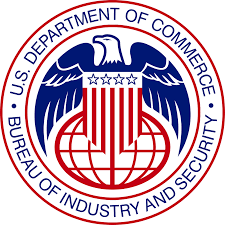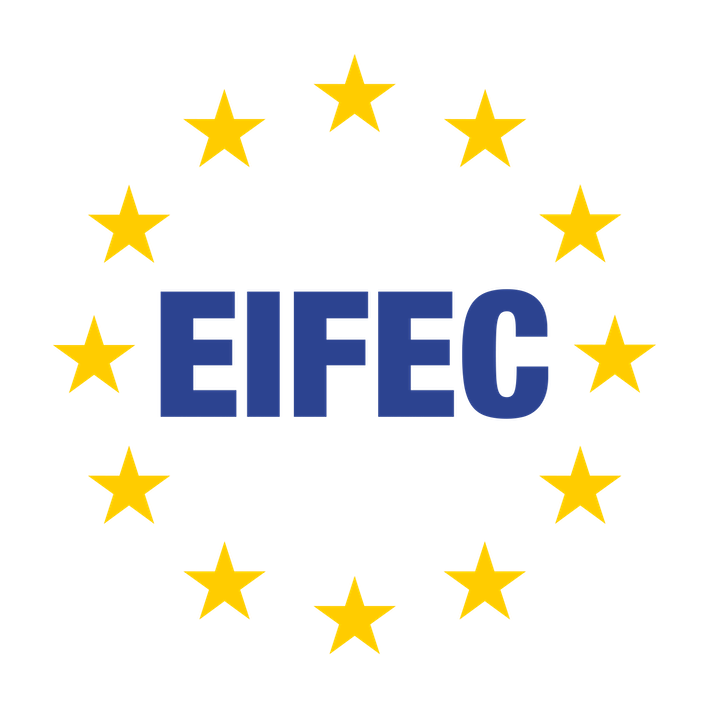BIS BUREAU OF INDUSTRY AND SECURITY
BIS, the great school of Export Compliance
Bureau of Industry and Security Mission
Advance U.S. national security, foreign policy, and economic objectives by ensuring an effective export control and treaty compliance system and promoting continued U.S. strategic technology leadership.
Guiding Principles of the Bureau of Industry and Security
This statement of principles represents the guiding philosophy of the Commerce Department's Bureau of Industry and Security in approaching its activities and fulfilling its responsibilities. This statement is not intended to dictate any particular regulatory action or enforcement action.
The Bureau's paramount concern is the security of the United States. The Bureau's mission is to protect the security of the United States, which includes its national security, economic security, cyber security, and homeland security.
- The Bureau's credibility - within government, with industry, and with the American people - depends upon its fidelity to this principle.
- For example, in the area of dual-use export controls, the Bureau will vigorously administer and enforce such controls to stem the proliferation of weapons of mass destruction and the means of delivering them, to halt the spread of weapons to terrorists or countries of concern, and to further important U.S. foreign policy objectives. Where there is credible evidence suggesting that the export of a dual-use item threatens U.S. security, the Bureau must act to combat that threat.
Protecting U.S. security includes not only supporting U.S. national defense, but also ensuring the health of the U.S. economy and the competitiveness of U.S. industry.
- The Bureau promotes a strong and vibrant defense industrial base that can develop and provide technologies that will enable the United States to maintain its military superiority.
- The Bureau takes great care to ensure that its regulations do not impose unreasonable restrictions on legitimate international commercial activity that is necessary for the health of U.S. industry. In protecting U.S. security, the Bureau must avoid actions that compromise the international competitiveness of U.S. industry without any appreciable national security benefits.
The Bureau strives to work in partnership with the private sector. The Bureau fulfill its mission, where possible, through public-private partnerships and market-based solutions.
- U.S. security cannot be achieved without the active cooperation of the private sector, which today controls a greater share of critical U.S. resources than in the past. At the same time, the health of U.S. industry is dependent on U.S. security - of our borders, our critical infrastructures, and our computer networks.
- The symbiotic relationship between industry and security should be reflected in the formulation, application, and enforcement of Bureau rules and policies.
The Bureau's activities and regulations need to be able to adapt to changing global conditions and challenges.
The political, economic, technological, and security environment that exists today is substantially different than that of only a decade ago. Bureau activities and regulations can only be justified, and should only be maintained, to the extent they reflect current global realities. Laws, regulations, or practices that do not take into account these realities - and that do not have sufficient flexibility to allow for adaptation in response to future changes - ultimately harm national security by imposing costs and burdens on U.S. industry without any corresponding benefit to U.S. security.
- In the area of exports, these significant geopolitical changes suggest that the U.S. control regime that in the past was primarily list-based must shift to a mix of list-based controls and controls that target specific end-uses and end-users of concern.
-
The Bureau also should be creative in thinking about how new technologies can be utilized in designing better export controls and enforcing controls more effectively.
The Bureau work cooperatively with other parts of the U.S. Government and with state and local governments.
- The Bureau collaborate in a collegial and effective manner with other agencies and departments of the U.S. Government, including the National Security Council, the Office of Homeland Security, the State Department, the Defense Department, the Energy Department, and the Intelligence Community.
- The Bureau consult with its oversight committees and other appropriate Members of Congress and congressional staff on matters of mutual interest.
International cooperation is critical to the Bureau's activities. Fulfilling the Bureau's mission of promoting security depends heavily upon international cooperation with our principal trading partners and other countries of strategic importance, such as major transshipment hubs. Whether seeking to control the spread of dangerous goods and technologies, protect critical infrastructures, or ensure the existence of a strong defense industrial base, international cooperation is critical.
The U.S. Government goal is to protect United States vital national interests, as articulated in the four pillars of the 2017 National Security Strategy of the United States of America (NSS). We aim to: (1) protect the American people, homeland, and way of life; (2) promote American prosperity; (3) preserve peace through strength; and (4) advance American influence.
The PRC today poses numerous challenges to United States national interests.
It includes economic, financial, american core values as unalienable right of every person to life, liberty, and the pursuit of happiness, Security.
President Trump has issued a new Executive Order 13936 which signs the Hong Kong Autonomy Act into law.
The E.O. authorises sanctions (asset freezing measures and a travel ban) to be imposed on people or entities involved in coercing / arresting / detaining / imprisoning individuals under the authority of the Hong Kong national security law, or involved in its adoption/implementation.
The E.O. also provides for sanctions on those determined to be responsible for/complicit in undermining democratic processes, or activities that threaten the peace, stability or autonomy of Hong Kong, including censorship, limiting the freedom of expression and human rights abuses.
The E.O. also declares that Hong Kong “is no longer sufficiently autonomous to justify differential treatment” in relation to China, and orders the suspension of Hong Kong’s special economic status. The White House press briefing reiterates that exports of sensitive technologies will be prohibited in the same manner that applies to China.
China is perceived as the main new challenge/ threat due to the world dominance seeking attitude.
We will boost all initiatives to promote the culture of Export Compliance as essential to do business “playing by the rules” to improve international relationships and security.
EIFEC Office in Washington D.C and in Hong Kong assist operators and institutions to keep up to date any compliance determination.
For more information


